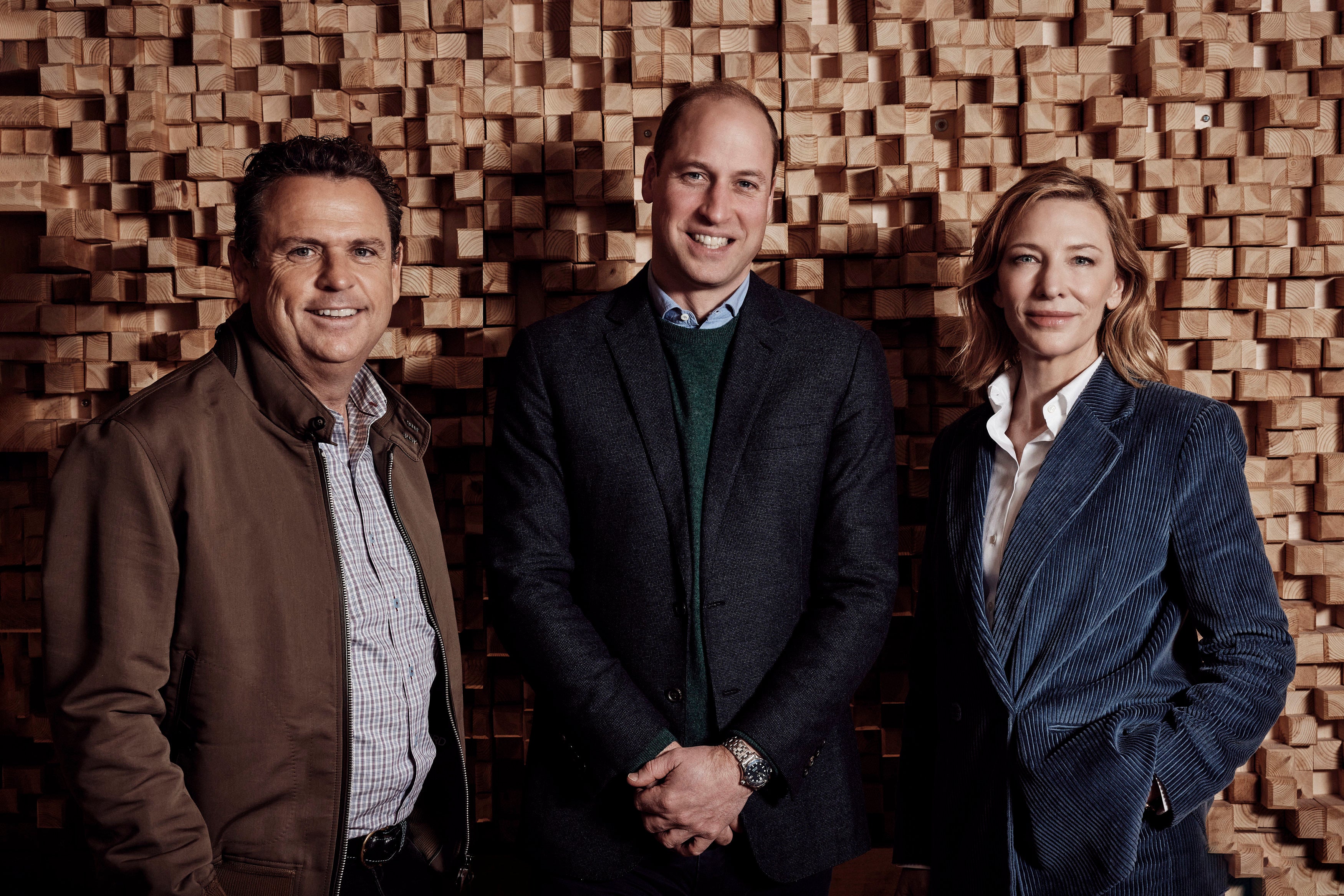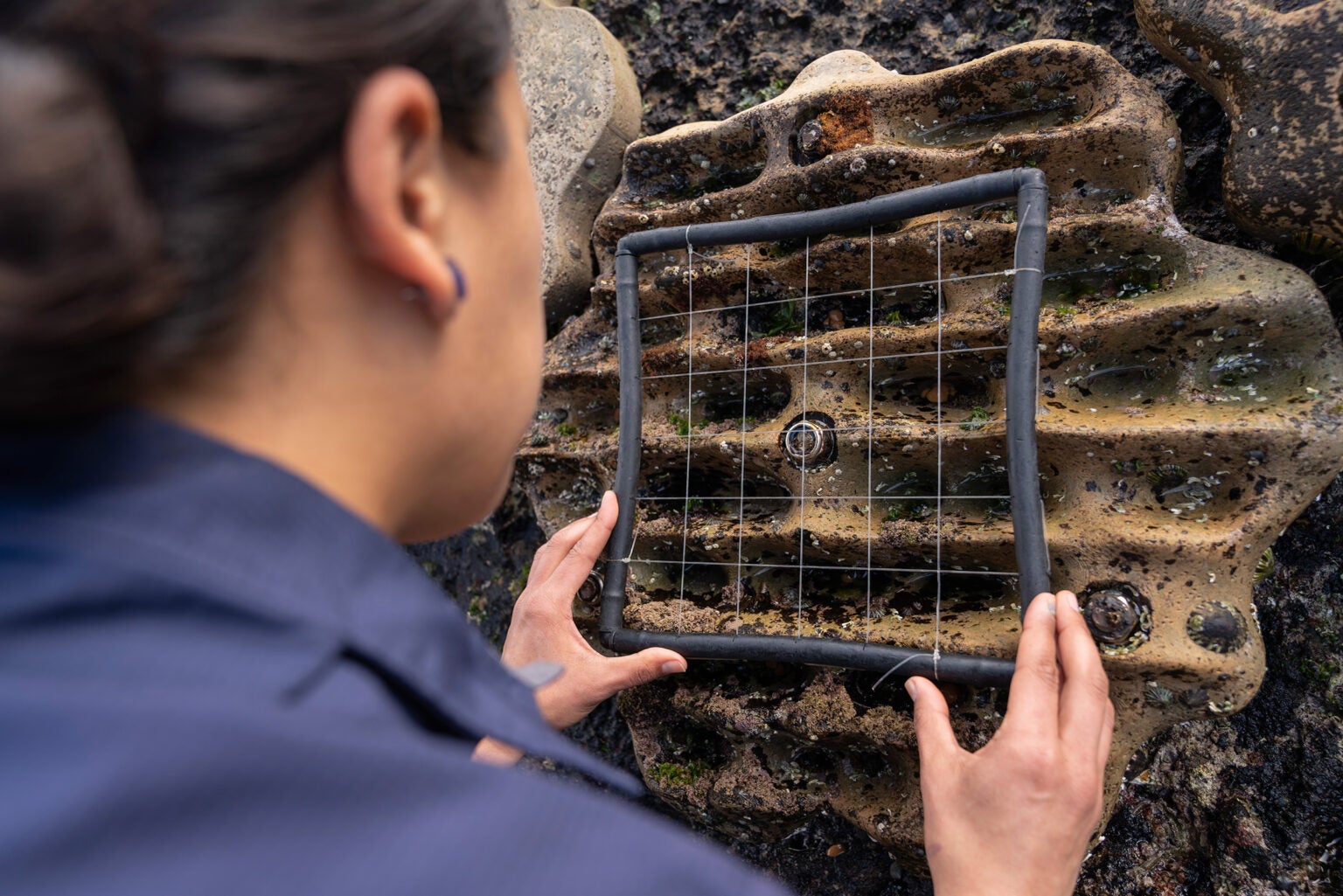Climate Of Change: Prince William suggests a living sea wall in the Thames on podcast with Cate Blanchett
Sea defences are an important part of climate change adaptation for coastal cities

Your support helps us to tell the story
From reproductive rights to climate change to Big Tech, The Independent is on the ground when the story is developing. Whether it's investigating the financials of Elon Musk's pro-Trump PAC or producing our latest documentary, 'The A Word', which shines a light on the American women fighting for reproductive rights, we know how important it is to parse out the facts from the messaging.
At such a critical moment in US history, we need reporters on the ground. Your donation allows us to keep sending journalists to speak to both sides of the story.
The Independent is trusted by Americans across the entire political spectrum. And unlike many other quality news outlets, we choose not to lock Americans out of our reporting and analysis with paywalls. We believe quality journalism should be available to everyone, paid for by those who can afford it.
Your support makes all the difference.The Duke of Cambridge says a ‘living seawall’ could improve biodiversity in the Thames.
Prince William hailed the “beautiful simplicity” of living seawalls during the Climate of Change podcast co-hosted by actor Cate Blanchett.
He spoke about Living Seawalls, a flagship programme of the Sydney Institute of Marine Science and a finalist in the Prince’s Earthshot Prize fund.
Sea defences are an important part of climate change adaptation for coastal cities, but the flat concrete structures are devoid of shelter for many marine organisms.
Founded in 2018, Living Seawalls has developed habitat panels, fitted to sea defences, that mimic natural formations like rock pools and mangrove roots.
The royal said: “Why can’t we put Living Seawalls all up and down the Sydney Harbour? Or the Thames here? It’s easy to do.”
William also said he believes "huge strides" can be made in tackling the planet’s environmental problems as he hailed the "game changing nature" of his Earthshot Prize.
The Duke spoke of his aim to focus on scaling up the competition’s inaugural winners and wanted more solutions to repair the planet led by women and indigenous communities from the 2022 nominees.
The duke said his appreciation of the natural world was "piqued" by his father and grandfather’s "passion" for it, and described boyhood memories of climbing trees, digging ditches and being out in the "wild and the wet".

He also revealed the run-up to the first awards ceremony for his environmental Earthshot Prize was "terrifying", but thankfully the event passed without too much of a hitch.
William chatted on the Climate of Change podcast from Audible, hosted by Blanchett, a member of the Earthshot Prize Council or judging panel, and climate entrepreneur and activist Danny Kennedy, who nominated a number of projects for the competition.
When Blanchett said he appeared "quite hopeful" that we may be able to "work our way out of what seems to be a crisis", the duke replied by quoting Christiana Figueres, chair of Earthshot’s board of trustees, saying he felt like a "stubborn optimist".
He added: "She’s given me a lot of hope that this can happen and I believe it, and I’m seeing it with my own eyes. It’s really inspiring, it’s really hopeful. And I do believe we can make huge strides.
"The same way the Earthshot to me is a team game, and as you know Cate, I said that to the prize council members, to all of you, it’s everyone doing their bit and helping and supporting what we’re trying to do - it’s all of us in it together.
"In the same collective spirit, it would be great if we could tackle climate change and environmental things the same way.
"I really do think it can be done in much quicker time than we anticipate because the solutions are out there. There are real solutions to these problems."
The inaugural Earthshot Prize ceremony was staged last October at Alexandra Palace in London and among those who walked the event’s "green carpet" were Harry Potter star Emma Watson, wearing a wedding dress made of 10 dresses from Oxfam, and Dame Emma Thompson.
The ceremony saw £1 million in prize money presented to each of the five category winners - protect and restore nature; clean our air; revive our oceans; build a waste-free world; and fix our climate - and organisers have said if their ideas are realised by 2030 it would improve life for all.
Nominations have opened for the 2022 Earthshot Prize being staged in the US, but the duke said they have yet to decide which city will host it, and he was keen to get a wider representation of nominees.
He said: "What I’d love to see personally, is I’d like to see more women-led solutions and more indigenous community-led solutions.
"But these next nine months, what we’ve got to really focus on is the scaling of the 2021 winners and finalists, that’s what’s really important to us - that’s the game changing nature of what the Earthshot Prize is about."
The duke travelled to the Bahamas last month where he visited the winners of the revive our oceans category - the Coral Vita project which grows coral on land to replant in oceans, giving new life to dying marine habitat.
Asked about his interest in the natural world, he said Sir David Attenborough’s documentaries had revealed there was a "wider world out there to explore" when he was younger.
He added: "And I think my grandfather, my father, both kind of having a deep passion and interest in this area for many years, has sort of piqued my interest and my curiosity.
"So growing up, I was surrounded by kind of this adventure and this idea of exploring and being out in the garden. I used to spend hours climbing trees, digging ditches and all sorts of things - hiding in dens and all sorts round the garden.
"So I used to love being out in the sort of wild and the wet."
Join our commenting forum
Join thought-provoking conversations, follow other Independent readers and see their replies
Comments